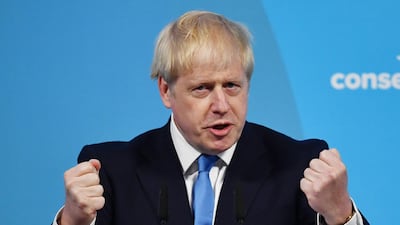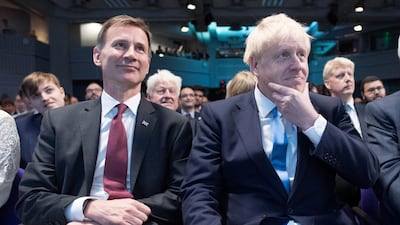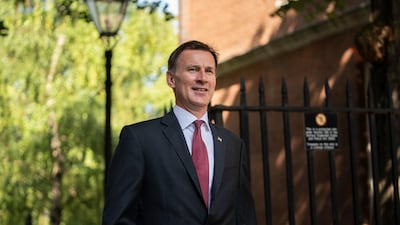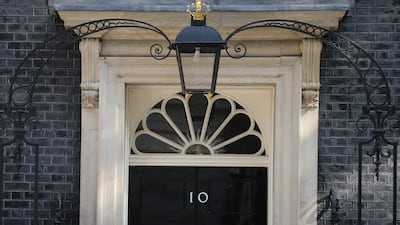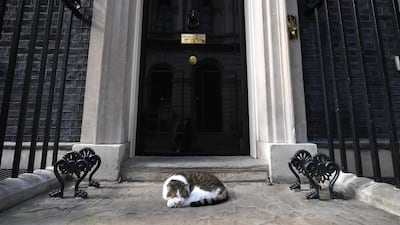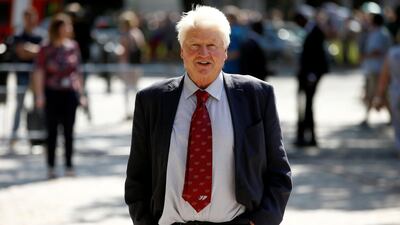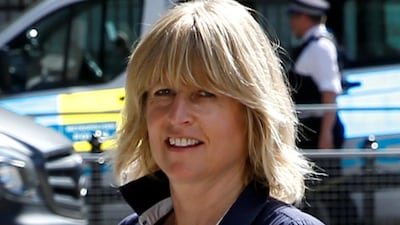Boris Johnson is to be appointed the next UK prime minister on Wednesday after beating rival Jeremy Hunt in a Conservative Party leadership race dominated by the government’s approach to leaving the European Union.
Mr Johnson, the former foreign secretary and mayor of London, won 92,153 votes to Mr Hunt's 46,656, a margin interpreted as mandate to shape his cabinet around influential loyalists.
A major figure in the pro-Brexit movement, he has billed himself as the man to finally take the UK out of the EU on October 31 – with or without a withdrawal agreement.
This hard-nosed approach has been slammed by some senior party figures and business leaders, who fear a no-deal Brexit could send the UK into a recession. As it became clear Mr Johnson was going to win, a number of Remain supporting ministers resigned to signal their objections to his approach.
Outgoing premier Theresa May, who has been in the job since 2016, is stepping down after her withdrawal agreement negotiated with the EU was rejected three times by parliament. Mr Johnson has said his preference is to agree a new deal with Brussels – who have reiterated this would not be possible.
Mr Johnson, the overwhelming favourite from the start, has gained the support of the Eurosceptic right-wing side of the Conservative’s and a handful more moderate elements of the party.
He will officially become prime minister on Wednesday after meeting with Queen Elizabeth and selecting his new cabinet.
Mr Johnson used his first address to put the UK's exit from the EU at the top of his to-do list and reminded his followers that the larger battle was to keep Jeremy Corbyn’s Labour Party out of government. "We know the mantra of the campaign that has just gone by, it is deliver Brexit, unite the country and defeat Jeremy Corbyn, and that is what we are going to do."
He did so while acknowledging the doubters still harboured reservations. "I know that there will be people around the place who will question the wisdom of your decision," he said. "There may even be some people here who still wonder what they have done."
However, he made it clear his mission was to mobilise Britain from the doldrums.
Mr Johnson said it had been pointed out that his campaign message of “deliver, unite and defeat” had its drawbacks, because it spelt out the acronym ‘dud.’ But the incoming prime minister countered that it was missing the final word of “energise,” spelling out the word ‘Dude’ in a possible reference to the 1992 film Wayne’s World.
"Dude, we are going to energise the country," Mr Johnson said. "The campaign is over and the work begins."
Mr Corbyn, whose Labour Party is advocating for a second Brexit referendum, said Mr Johnson’s approach to leaving the EU could be devastating.
“Boris Johnson has won the support of fewer than 100,000 unrepresentative Conservative party members by promising tax cuts for the richest, presenting himself as the bankers’ best friend, and pushing for a damaging no-deal Brexit,” Mr Corbyn said.
“Johnson’s no-deal would mean job cuts, higher prices in the shops, and risk our NHS being sold off to US corporations in a sweetheart deal with Donald Trump.”
Mr Hunt praised Mr Johnson's "optimism, energy and unbounded confidence in our wonderful country".
Congratulating her successor, Mrs May said: “We now need to work together to deliver a Brexit that works for the whole UK and to keep Jeremy Corbyn out of government. You will have my full support from the back benches.”
Reaction across the globe was split, with US President Donald Trump welcomed Mr Johnson's win and said he would be a "great" leader.
The incoming head of the European Commission, Ursula von der Leyen, warned "there are many different and difficult issues to tackle together. We have challenging times ahead of us."
French leader Emmanuel Macron added his congratulations, saying he hoped to meet "as soon as possible" with the new prime minister.
Italy’s anti-EU interior minister Matteo Salvini, head of the League political party, said claims Mr Johnson was “more dangerous” than the League made “him all the more likeable to me.”
The British Chamber of Commerce urged Mr Johnson to knuckle down and stop a no-deal Brexit that "would bring pain to communities across the UK and disruption to our trade around the world."
The prime domestic challenge is shore up a governing majority in the House of Commons. Northern Ireland’s Democratic Unionist Party, with who the government as a confidence and supply agreement to ensure a parliamentary working majority, will review its relationship with the Conservatives, according to party leader Arlene Foster.
